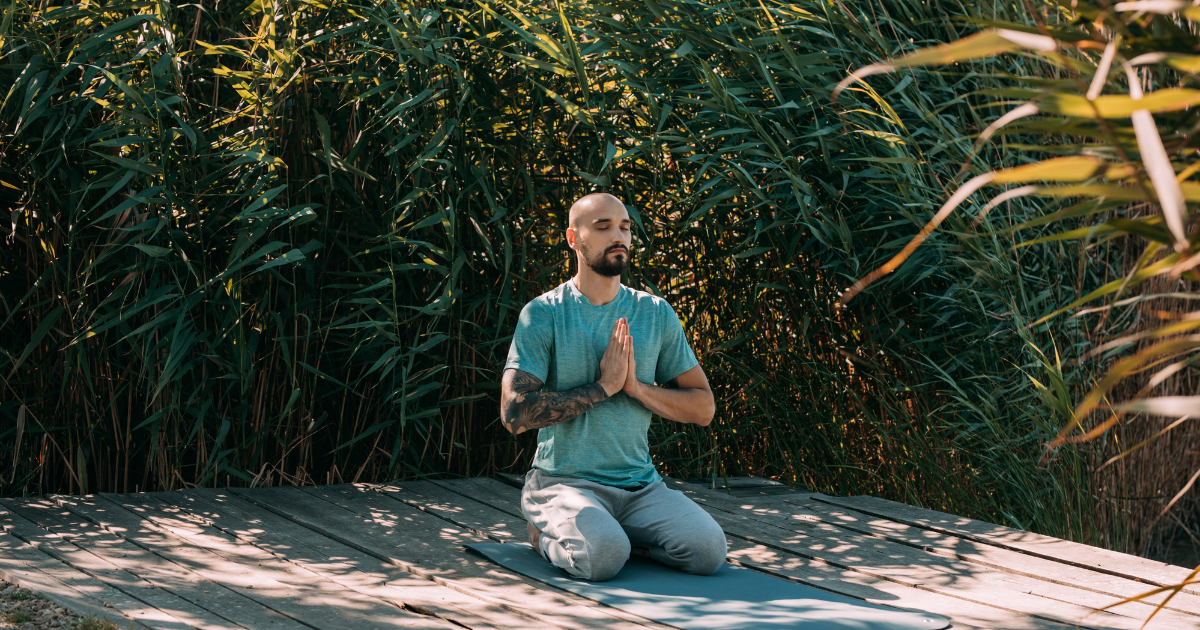Successful stress management is vital for maintaining a state of lasting recovery. While in treatment for substance use disorder, it is essential to learn constructive coping mechanisms and stress responses for the life challenges ahead. Once learned, these stress busters can decrease your risk of relapse while equipping you to handle the difficult situations you might experience in the future. Here we will discuss how to utilize stress management techniques so that you have them as a resource moving forward.
How Stress Leads to Substance Use Disorder and Addiction
The experience of chronic stress, stress that is long-lasting and continues for extended periods of time, can have negative effects on both physical and mental health. Prolonged stress is also known to increase an individual’s risk of developing a serious mental health disorder such as depression or anxiety. [1]Drake, R. E., Mueser, K. T., Brunette, M. F., & McHugo, G. J. (2004). A review of treatments for people with severe mental illnesses and co-occurring substance use disorders. Psychiatric … Continue reading
People dealing with chronic stress who also lack resources and healthy coping mechanisms are more likely to turn to addictive behaviors (drugs or alcohol use) as a method of stress-management. [2]Sinha, R. (2008). Chronic stress, drug use, and vulnerability to addiction. Annals of the New York Academy of Sciences, 1141 (1), 105-130. https://doi.org/10.1196/annals.1441.030 This is a counterproductive way of coping with stress because substance use in and of itself has detrimental effects on physical and mental well-being. The two-way connection between substance use disorder and stress leads to a revolving process of stress leading to substance use and the substance use then triggering feelings of stress in the body. [3]Evins, A. E., Green, A. I., Kane, J. M., & Murray, R. M. (2012). The effect of marijuana use on the risk for schizophrenia. The Journal of clinical psychiatry, 73(11), 3301. … Continue reading
Mental Health and Substance Use Disorder
Mental health and substance use disorder are often linked because many who struggle with substance use disorder also suffer from some form of mental health issue. A professional evaluation from a health care expert is required to assess and diagnose the existence of a co-occurring mental health disorder.
This means that whenever a mental health issue and substance use disorder are both present in an individual, both issues will be verified and the person will receive a dual diagnosis. [4]Yule, A. M., & Kelly, J. F. (2019). Integrating Treatment for Co-Occurring Mental Health Conditions. Alcohol research: current reviews, 40(1), arcr.v40.1.07. https://doi.org/10.35946/arcr.v40.1.07 When a dual diagnosis occurs, the person must seek specialized treatments to manage both conditions—both separately and together—at the same time.
Both mental health disorders and substance use disorders are worsened by stress, but they can also contribute to stress in a person’s life. One way to help address many dual diagnoses is to develop a set of stress-busting strategies to cope with the stressors that contribute to mental illness and substance use disorder.
By reducing stress, people with a dual diagnosis can better cope with the problems they will face in everyday life, so that they are less susceptible to engaging in addictive behaviors. Not every recovery program is equipped to assist in recovery for co-occurring disorders or implementing a dual-diagnosis treatment.
What Mental Health Disorders Often Accompany SUD?
The most common mental health disorders that co-occur with substance use disorder are:
- Anxiety disorders like generalized anxiety, panic disorder, or PTSD (post-traumatic stress disorder)
- Mood disorders like bipolar disorder and depression
- Personality disorders like antisocial personality disorder, avoidant personality disorder, borderline personality disorder, and paranoid personality disorder
- ADHD (Attention-deficit hyperactivity disorder)
- Psychotic disorders like schizophrenia
The Importance of Stress Management in Recovery
People who can master stress management while in treatment for substance use disorder are more likely to successfully manage encountering the triggers, and subsequent cravings common in substance abuse. Again, it is important to remember that stress impacts mental functioning, and a compromised mental state due to stress can lead to relapse. Furthermore, those in recovery with a dual diagnosis must manage the stressors that stem from their mental health disorder as well, to stave off an incident of relapse. [5]Hassanbeigi, A., Askari, J., Hassanbeigi, D., & Pourmovahed, Z. (2013). The relationship between stress and addiction. Procedia-Social and Behavioral Sciences, 84, … Continue reading
Stress Relief Ideas
The mind, body, and spirit can each be negatively impacted by stress effects, so it is vital to develop healthy ways to cope with stress if you want to successfully recover from substance use disorder and thrive in terms of your mental health. The following stress tips illustrate a few of the many stress-busting strategies that you can use to maintain a healthy mind and a healthy life. Explore as many of them as you wish before, during, and after treatment. Overall, they are simple and effective resources for helping to manage stress.
Morning Mindfulness Practice
Implementing a series of mindfulness practices is an excellent technique for creating a more peaceful start to your day. Setting your alarm 30 minutes or even an hour earlier than normal can give you extra time to ease into the day ahead and make time for a more mellow start to a routine filled with hustle and bustle.
Eating breakfast instead of rushing out the door, taking time to write down your plans for the day, or simply sitting in the morning silence to breathe and center yourself are all simple ways to practice mindfulness. Beginning your days earlier can open you up to more creative thoughts and make your mornings feel less rushed.
Create a Daily Routine
Routine development is incredibly important in early recovery because it sets you up to form a structured day of activity to keep busy. A solid daily routine, once developed, can and should be used as a tool for lasting sobriety. Days with too much unstructured time are full of temptations and downtime that can lead to boredom, which can be a catalyst for relapse. Alternatively, a day that is too full of activity, or otherwise poorly planned can cause unnecessary stress, which can also lead to relapse. Both issues can be greatly circumvented by establishing a solid, productive daily routine. Setting measurable daily goals and making a commitment to living each day with intention will create the structure that will benefit your recovery efforts long after treatment.
Focus on Gratitude
When you have a stressful day at the office, or your commute is filled with delays, you should take a minute to slow down and find something funny or beautiful to spark feelings of cheer. These things can be as simple as noticing the children playing outside, the clouds in the sky above, or the awesome song that’s playing on the radio. Focusing on the things you are grateful for can remove you from the initial feelings associated with stressful events, lower your stress levels, and allow your brain to release feel-good neurotransmitters to the rest of your body.
Journaling
Journaling is an activity that is strongly encouraged during treatment in addiction recovery. Use your journaling to write out how you’re feeling — include any cravings you have, concerns, or details of the events that may be stressful. You should also write down your wins (big or small), to help you process the flow of your day.
More often than not, problems that initially seem unsolvable, can be worked through once you see them written down on paper. Another wonderful by-product of journaling is that your previous journal entries can one day be used for you to reflect on your recovery journey. One day in the future, you can look back and see how far you’ve come and how much you have overcome.
Use Calming Music
If you have an intense morning or evening commute, with crowds, noise, or bumper-to-bumper traffic, you should not add intense or emotionally charged music to the chaos. Instead, choose to listen to music that puts your mind at ease and gives you cues of lightness and relaxation. Try to refrain from jarring sound effects, and songs laced with profanity, and opt for music with lots of jazzy riffs, or tunes that showcase real instruments.
You may want to create a playlist of “feel good” music to set the tone of your commute. Music is an effective resource for relaxation and stress management, so turn on a pre-made playlist of relaxing jazz pieces or another type of music that you find soothing.
Exercise
There are few stress relief techniques as helpful as exercise. Physical activity is an often-overlooked stress-busting technique, and few people actually understand the specific ways movement leads to stress reduction. Exercise offers immense stress management benefits, lowering your cortisol levels, helping your body release endorphins (which are the body’s natural painkillers). Exercise is also known to boost your mood, help you sleep more soundly, and increase self-confidence. Exercising helps you feel better, look better, and encourages you to make healthier decisions.
Spend Quality Time With Family and Friends
Having a group of supportive loved ones and recovery peers from your treatment program can get you through the tough times when they arise. The people closest to you love you and will encourage you to make healthy choices, and your peers from treatment can relate to your struggles and help you feel less alone.
By building a network of strong social connections, you will have an invaluable resource to tap into when stressors arise. Knowing that you have people in your life who will cheer you on can be a great motivator for staying on the path of recovery when you are feeling vulnerable.
Breathing Exercises
One quick and simple way to calm down when you feel stressed or overwhelmed is to slow down and regulate your breathing. Similar to mindfulness practice, and gratitude, breathing can help you stay present, achieve calm, and focus more clearly when under stress. When you take deep, full breaths, you begin to activate your body’s parasympathetic nervous system.
This system is responsible for creating a relaxation response that will slow your heartbeat and lower the level of cortisol in your body, alleviating stress. Several methods of focused breathing exist, so you should try out the different methods until you find one that works for you.
Lower Your Caffeine Consumption
This stress buster may not be as fun as some of the others, but it can prove to be greatly beneficial in helping you manage stress and feel less anxious. Caffeine is a staple for many, used to get through busy days, but it is also a stimulant. Coffee, soda, tea, and energy drinks all contain caffeine and as with many substances, a tolerance to it builds over time.
To achieve the same energy-boosting effects, many people have large quantities of caffeine, resulting in some people feeling anxious and jittery. Very few people realize just how negatively caffeine consumption impacts their stress levels, so if you’re feeling any negative side effects of caffeine, you should begin cutting back gradually to feel better.
Tap Into Progressive Muscle Relaxation
Progressive muscle therapy is a two-step process to help you systematically achieve stress relief. First, you’ll want to tense up all your muscles and hold them. Next, you will begin to gradually relax your muscles in order. Starting at your toes, then heels, and then your legs, you want to work all the way up your body until you reach your tightened shoulders and your furrowed eyebrows.
Progressive muscle relaxation is a technique that allows you to intentionally acknowledge tension in your body and identify any tightness inside your muscles that tends to happen in times of stress. Another added benefit of progressive muscle relaxation is that it disrupts tension-causing thoughts as you bring your body into a state of relaxation.

CADC II, Certified AOD Counselor
Nora Jenkins has made the quality and committed care we provide at Lilac Recovery Center possible. Nora is experienced in providing care to assist in rebuilding relationships to support healthy, long-term recovery. Her professional background includes clinical management, program administration, and counseling.
References[+]
| ↑1 | Drake, R. E., Mueser, K. T., Brunette, M. F., & McHugo, G. J. (2004). A review of treatments for people with severe mental illnesses and co-occurring substance use disorders. Psychiatric rehabilitation journal, 27 (4), 360. https://doi.org/10.2975/27.2004.360.37 |
|---|---|
| ↑2 | Sinha, R. (2008). Chronic stress, drug use, and vulnerability to addiction. Annals of the New York Academy of Sciences, 1141 (1), 105-130. https://doi.org/10.1196/annals.1441.030 |
| ↑3 | Evins, A. E., Green, A. I., Kane, J. M., & Murray, R. M. (2012). The effect of marijuana use on the risk for schizophrenia. The Journal of clinical psychiatry, 73(11), 3301. https://doi.org/10.1016/S0006-3223(00)00900-8 |
| ↑4 | Yule, A. M., & Kelly, J. F. (2019). Integrating Treatment for Co-Occurring Mental Health Conditions. Alcohol research: current reviews, 40(1), arcr.v40.1.07. https://doi.org/10.35946/arcr.v40.1.07 |
| ↑5 | Hassanbeigi, A., Askari, J., Hassanbeigi, D., & Pourmovahed, Z. (2013). The relationship between stress and addiction. Procedia-Social and Behavioral Sciences, 84, 1333-1340.https://doi.org/10.1016/j.sbspro.2013.06.752 |









